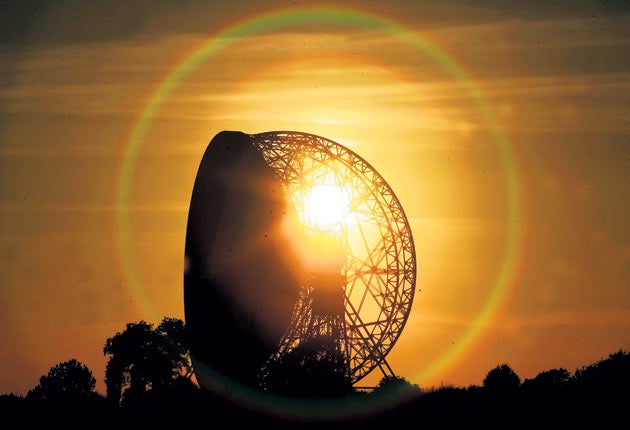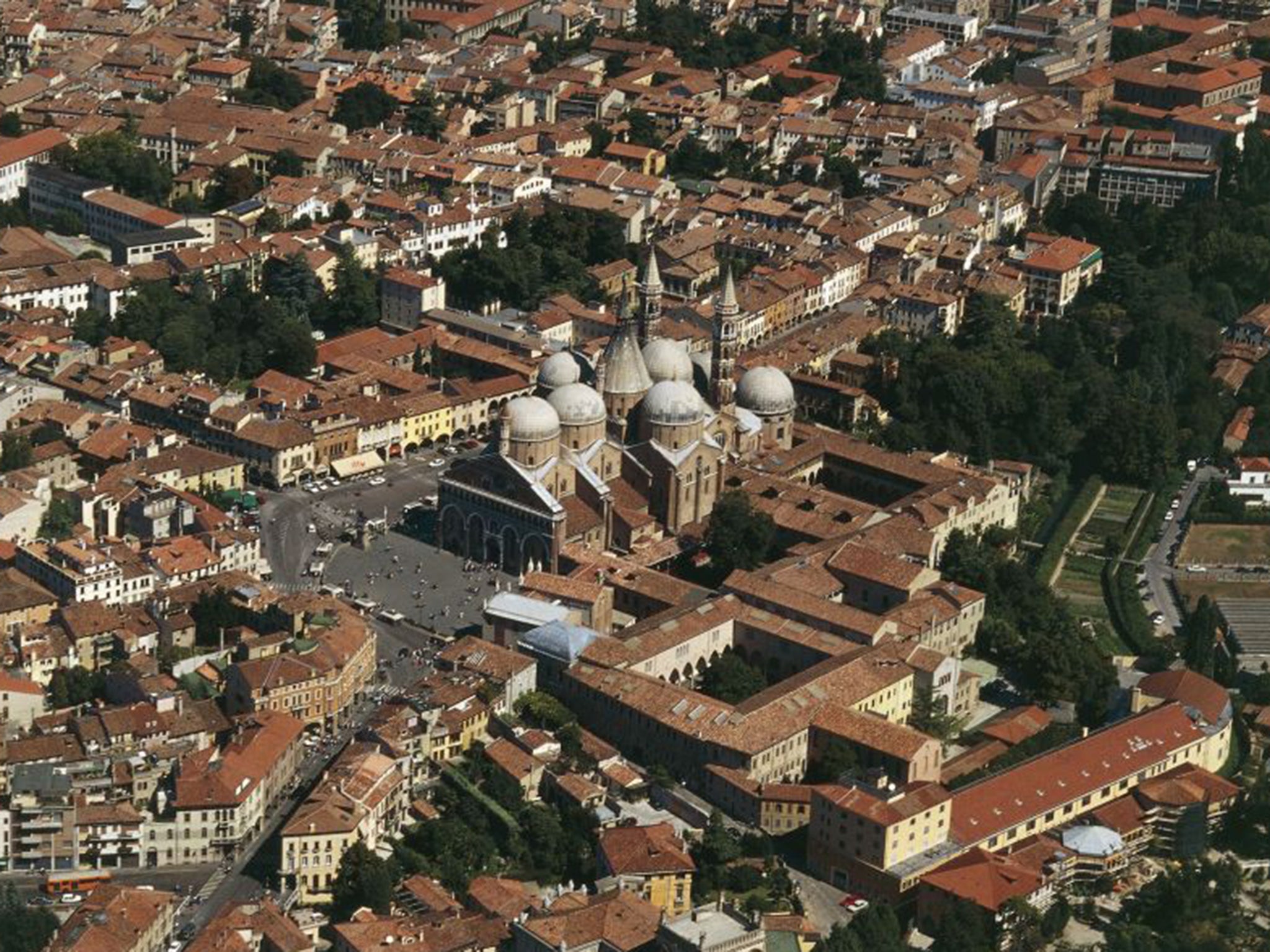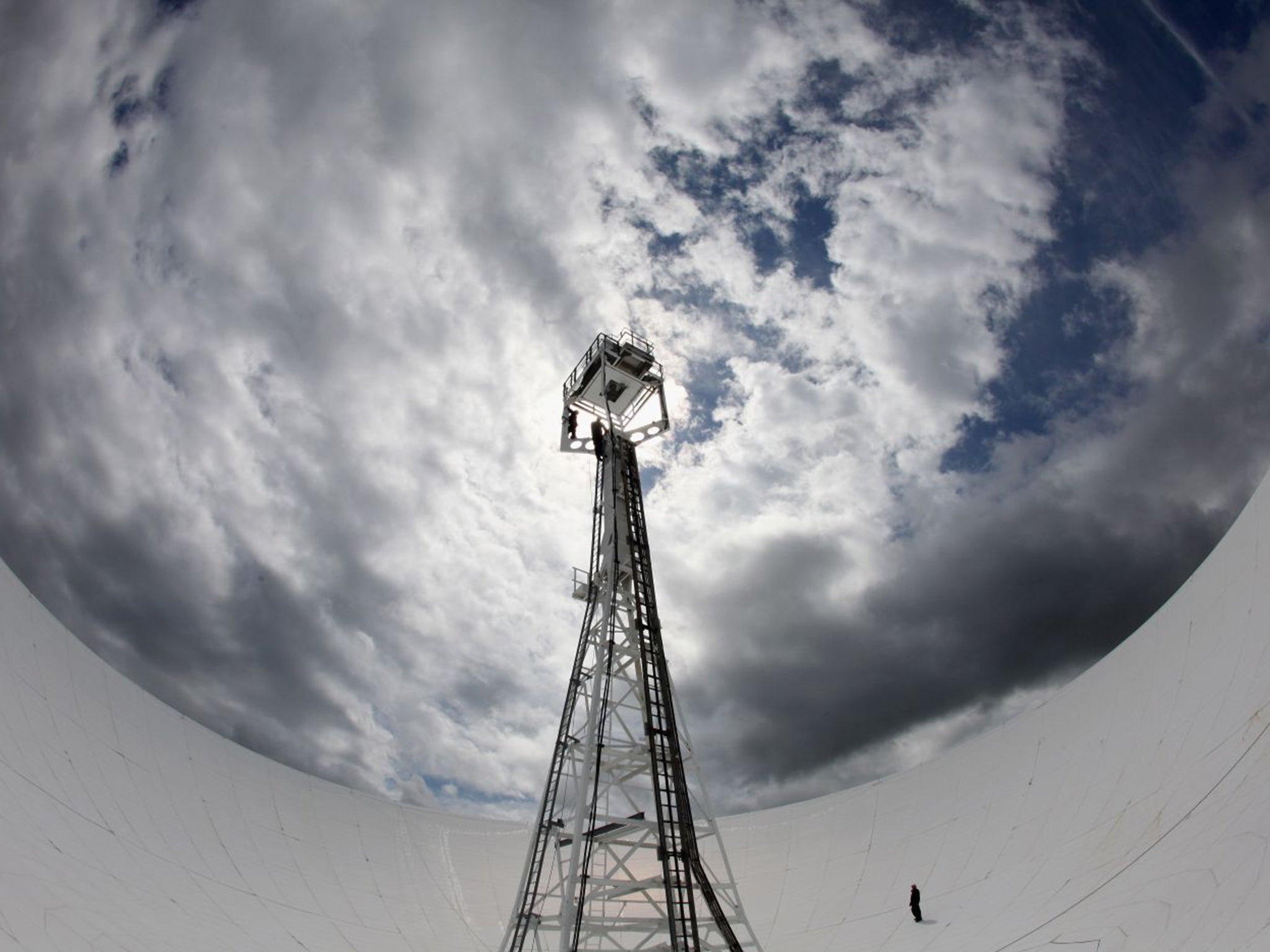Square Kilometre Array: Jodrell Bank no match for Padua, say Italians in fight over mega-telescope HQ
Cost of new telescope estimated at £2bn

British and Italian scientists are at loggerheads over who gets to host the headquarters of the world’s biggest radio telescope – an instrument so powerful it will allow scientists to look all the way back to the aftermath of the Big Bang.
The UK candidate is the renowned Jodrell Bank Observatory in Cheshire, home to the groundbreaking Lovell Telescope, the world’s biggest steerable radio dish when it was built in 1957.
But it faces opposition from Castello Carrarese, a restored medieval castle in Padua. The northern Italian city is another great astronomy hub, hosting the country’s National Institute of Astrophysics (Inaf), which has a huge astronomical observatory, along with one of Italy’s top-rated universities, where Galileo Galilei made his reputation.
Although the Square Kilometre Array (SKA) telescope itself will be in South Africa and Australia, the headquarters will be crucial to its running, housing the scientists who will control what it observes. The cost of the telescope, which was conceived in 1991, has been estimated at £2bn.

The prestige associated with this unprecedented astronomical project is immense and the British and Italian governments are engaged in a furious lobbying war to secure the right to host the HQ.
Speaking to The Independent, the masterminds of the Italian bid were in bullish form, saying the “culturally rich” Padua was clearly superior to “isolated” Cheshire. “There is no question that the Italian entry comes out as a clear best in many counts,” said Giovanni Bignami, the president of Inaf.
“The working environment is infinitely better in the Padua region – a city like Padua is much better than the rural environment of Cheshire, which is a trifle isolated.
“Padua is practically connected to Venice, which is much better for families, and it is a culturally rich environment.”
He added that there was “nothing superior” about the UK bid – pointing out that the selection panel nominated by the telescope’s board had found Italy to be the stronger candidate. That recommendation had surprised the British camp, which had been confident of Jodrell’s supremacy.
A meeting of the telescope’s board last week was expected to endorse the Italian site, but the decision has been delayed after Jodrell’s backers convinced the SKA board that it needed to consider additional criteria, such as the “organisational and operational implications of the move”. Both sides are now working on those details, with a final decision expected in the next few weeks.
The UK Government declined to respond to the Italians’ pointed attack on the Cheshire site yesterday.
But Avi Loeb, the head of Harvard University’s astronomy department, came to the UK’s defence. “Padua does have a larger community of astronomers, as well as the Galileo connection. But Jodrell’s tradition of radio astronomy is stronger,” Professor Loeb said, pointing out that the UK site is near to Manchester, an urban hub.

Construction of the telescope is due to begin at the end of 2017 and it will become fully operational by 2024. It is so large that it will be spread across two continents, involving 2,500 radio dishes and one million antennas being spread over thousands of kilometres in the deserts of South Africa and Australia.
It will help scientists to study the birth of the Universe by looking back to the “cosmic dawn” – a period about half a million years after the Big Bang, when the Universe cooled enough for matter to condense and begin the process of the creation of galaxies, stars and planets. It also provides by far the best chance yet of finding an advanced alien civilisation.
The SKA will act as a virtual radio telescope that will be more than 50 times more sensitive than any existing radio telescope, surpassing even the resolution of the Hubble Space Telescope.
Tale of the tape: How the sites measure up
Jodrell Bank
Established in 1945 by Sir Bernard Lovell, a radio astronomer at Manchester University who wanted to investigate cosmic rays after his work on radar during the Second World War.
- Best known as the home of the Lovell radio telescope, which is still the third-largest in the world.
- Although based in Lower Withington, it is only a 45-minute drive from Manchester, a major player in the Industrial Revolution, the Suffragette movement, football and music.
Castello Carrarese
Dating back to the 13th century, this castle in Padua has been rebuilt a number of times and is currently being refurbished.
- The surrounding area has a very strong astronomical culture. Galileo Galilei attended the local university.
- The city is also host to Italy’s National Institute of Astrophysics, which has a big astronomical observatory.
- Padua is only 30 miles from Venice, the historic and beautiful city of canals. Substantially less rainy than Cheshire.
Join our commenting forum
Join thought-provoking conversations, follow other Independent readers and see their replies
Comments
Bookmark popover
Removed from bookmarks